-
Featured News
Marianne Faithfull 1946-2025
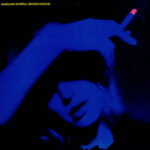 By Harvey Kubernik
Singer, songwriter, actress and author Marianne Faithfull passed away on January 30, 2025.
In 2000 I discussed Faithfull with her first record producer Andrew Loog Oldham, the 1
By Harvey Kubernik
Singer, songwriter, actress and author Marianne Faithfull passed away on January 30, 2025.
In 2000 I discussed Faithfull with her first record producer Andrew Loog Oldham, the 1 -
Featured Articles
The Beatles: Their Hollywood and Los Angeles Connection
 By Harvey Kubernik
JUST RELEASED are two new installments of the Beatles’ recorded history, revised editions of two compilation albums often seen as the definitive introduction to their work.
Or
By Harvey Kubernik
JUST RELEASED are two new installments of the Beatles’ recorded history, revised editions of two compilation albums often seen as the definitive introduction to their work.
Or -
Thor G. Noras: Look to Norway!
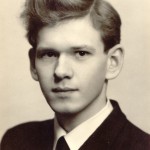
Wild Times with Thor G. Noras, the Lunicks, Bente Lind, and the Ski Ungdomsklubb Scene
By Mike Stax
One of the resources we have at the Ugly Things website is Searchin’ For Shakes, an extensive, near-complete database of ‘60s garage, beat and psychedelic compilations. We receive numerous e-mails as a result of this, some of them from the original band members or others somehow involved in a particular recording. One of the most interesting I’ve yet received came from Norway, in reference to the song “Goodbye Jimmy, Goodbye” by Bente Lind & the Lunicks, a cool femme-sung beat track that can be found on the Girls in the Garage series.
“It gave me great pleasure to find this record in your list,” the e-mail read. “The record has a story attached to it that may interest US listeners. The country singer Jim Reeves was very highly appreciated in Norway, so when he suddenly died in a plane crash we went into the studio and recorded the song. The intro is played on an organ to give a chapel-like atmosphere, and then it went on in a teen-beat fashion, something like the bluebeat of Jamaica or junior high rock’n’roll from the USA. However, on the second day of Christmas we performed in a little village in eastern Norway. On our way back the car slid on the icy road and the organ player was killed instantly.
“On New Year’s Eve, we were in Arendal, a lovely city in southern Norway, Bente’s hometown. Everybody wanted to hear her great hit song, ‘Goodbye Jimmy, Goodbye.’ She made herself ready and waited for the intro. When it came she was a little bit puzzled: it didn’t come from the organ but from the lead guitar. The organ player was the day before buried and the whole group was present. Bente started crying, the band stopped playing and everybody looked very confused. I had to go on stage and tell the sad story, about Gentleman Jim Reeves and his tragic fate, the organ player who had been killed—and why the city’s darling, Bente, was crying instead of singing.
“But that special New Year’s Eve was one of the most memorable all of us have experienced. People were having a beautiful evening, holding each other close and dancing to the orchestra: Bente Lind & the Lunicks.”
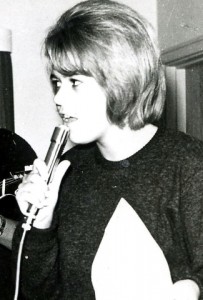
Bente Lind, ca. 1964.
The writer of the e-mail was Thor G Norås, the group’s mentor and chief songwriter. Before long, messages were flying back and forth as I began to find out more about this extraordinary character, who left his fingerprints all over the early Norwegian rock’n’roll scene as a successful songwriter, musician, manager, producer, arranger and promoter, working not only with Bente Lind & the Lunicks but also such artists as Harald Pettersen, the Green Onions, Nina & Patzy, Jørn Are and many more. These acts may be virtually unknown outside of Norway, but much of their music has an enduring, almost magical quality that should appeal to any fan of ‘60s beat and rock’n’roll. The reason for the strange, indefinable flavor of these records becomes more apparent as one learns more about the life and unique personality of the man who played such a large role in their creation.
It’s the story of the blending of many different musical and cultural influences, and of the small but remarkable music scene that blossomed out of an innovative, free-thinking youth club organization on the outskirts of Oslo. Its impact may have been limited in a geographical sense, but what happened at the Ski Ungdomsklubb in the early ‘60s was in many ways a microcosm of the teenage cultural explosion that was shaking the world.
A thank you from Phil May to his fans
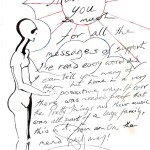
Phil has now been out of the hospital for some time, and is making good progress with his health. He has been very touched by the deluge of letters and cards he’s received so far from Pretty Things fans. Please keep them coming.
The Radiators From Space Story, Part 3: Troubled Pilgrims
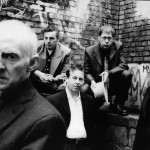
By Brian Neavyn
The arrival of the Radiators From Space on the Dublin scene as punk emerged was followed in early 1977 by their super-charged debut single “Television Screen.” Their move to London that autumn without lead singer Steve Rapid coincided with the release of their red hot album TV Tube Heart. On this evidence the band were very much a contributor to the new punk rock sound. This early period and the band’s interaction with the London punk scene is covered in detail in UT#35. Linking up with producer Tony Visconti as the year ended, opened up possibilities for songwriters Philip Chevron and Pete Holidai. They grasped the opportunity to pursue a musical path that their earlier pre-punk music influences determined. In early 1978, the Radiators (re-named) launched their radical new sound. The powerful and catchy glam-pop single “Million Dollar Hero” very nearly broke into the charts and was the appetizer for their unique Ghostown album, which was recorded in summer 1978.
However the punk scene was changing and developing so rapidly month by month that all acts associated with the early ‘76/’77 scene faced an uncertain reception. For the Radiators, much of their punk fanbase had peeled away by the time Ghostown was released over a year later. The delayed release did not help their cause and the band broke up in early 1981. Despite two project-focused but brief activities in the late 1980s the Radiators from Space were no more. UT#36 carries the story of the Ghostown album. The album’s literary references were woven with criticism of the state and in particular the church. This story also covers the release in 1989 of the single “Under Clery’s Clock” where Phil Chevron, in revealing his homosexuality, wrote of the dating experience of a young gay man.
Throughout the ‘90s their musical legacy attracted an ever growing international interest. The Radiators From Space reformed in late 2003 to play a Joe Strummer tribute concert. Guitarists Phil Chevron and Pete Holidai were joined for the show by original singer Steve Rapid and a new rhythm section of Cait O’Riordan on bass and Gareth Averill (Steve’s son) on drums.